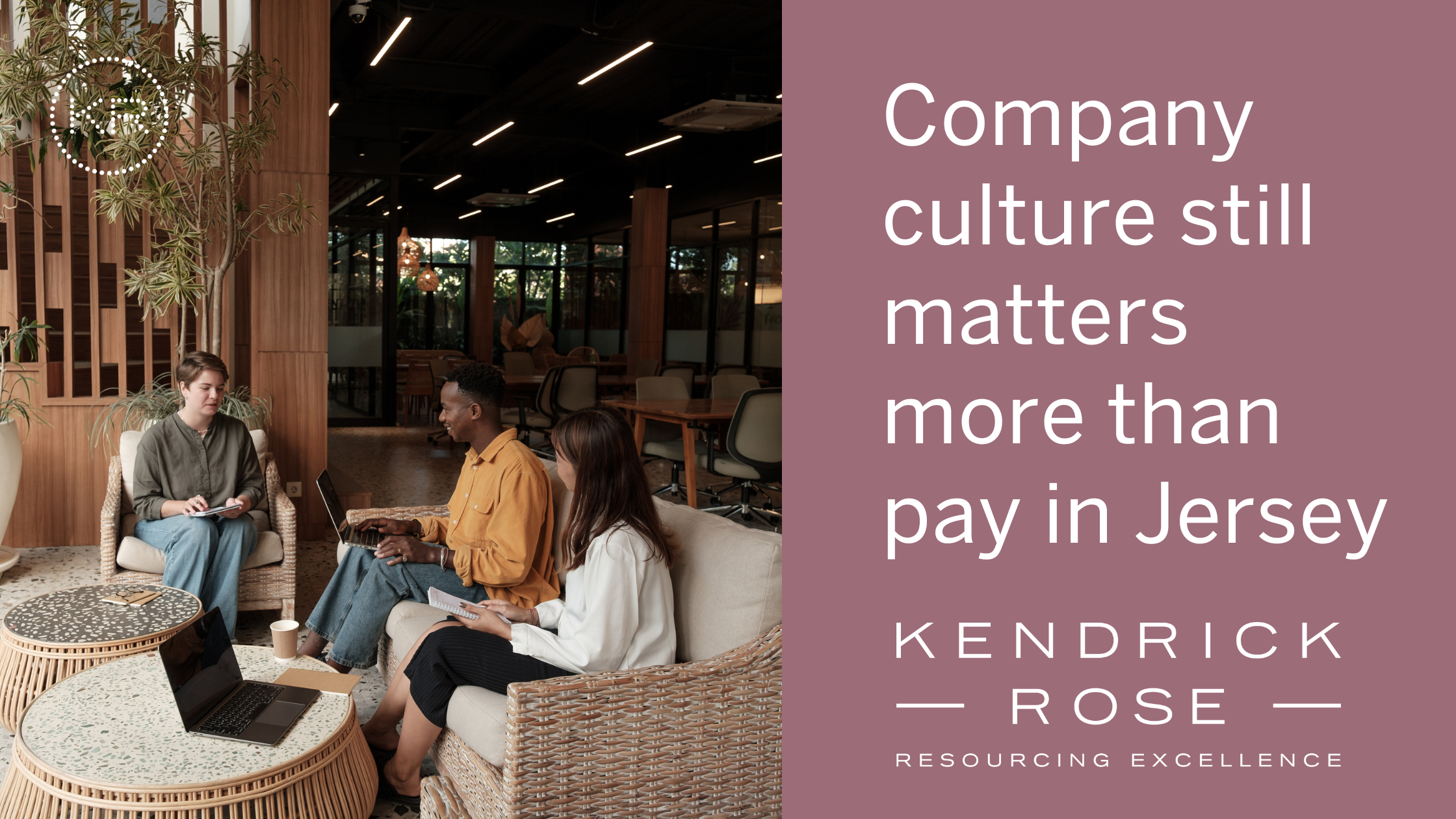Why Company Culture still matters more than pay in Jersey when considering a new job
Posted on 21/05/24
Company culture remains top of the list of must-haves for professionals in Jersey with 8% more workers ranking it above flexible working, package, and pay than a year ago.
A poll by Kendrick Rose in May 2024 found that 54% of professionals cited company culture as the most important factor for them when looking for a new job. 27% chose flexible working, while 13% rated package, and 6% plumped for pay.
The figures show a small shift in priorities away from flexible working and pay to company culture over the past year. In the 2023 poll 46% of people said company culture was most important, 34% said flexible working mattered most, while 10% each cited pay and package as the most significant factors when considering a new job.
Shelley Kendrick, Managing Director, Kendrick Rose, said: “Employees expect fair compensation, however, pay is not the biggest consideration for professionals when looking for a new job in the island. Company culture goes far beyond ESG policies. It can include management style, with leaders setting clear objectives, learning and development, how teams work together, and other ways employees feel engaged and supported. Candidates want to find meaning in what they do and work for organisations that are aligned to their values especially around the environment and inclusion. With Millennials and Gen Z making up an increasing share of the workforce, as the final Baby Boomer workers exit it, this trend is likely to continue.”
93 people responded to the poll, which ran over five days in May 2024 on Linked In. Results correspond with global research by Linked In in which 59% of Europe-based respondents stated they would not work for an organisation that did not share their values, with 55% saying a pay rise wouldn’t make them change their opinion.
Although the number of people prioritising flexible working fell over the past year – by 7% - it remains an important consideration for employees. Research by New Possible in the UK found 50% of employees who don’t already have flexible working options would consider changing jobs this year compared to just 28% of people who do. While this includes all sectors, a survey by People Management of its readers found 69% of them would start looking for a new job if they were told to attend the office more.
Shelley said: “While commuting in Jersey is less of a time or cost issue than for people living outside large cities in the UK, working from home, some or all the time is still seen as a big positive by many employees. People value choice and younger generations have a greater expectation that a job should fit into their life, rather than the other way around.”
For those yet to enter the workplace, the goals are becoming even more personalised. In a survey of 13–16-year-olds in the UK for the BBC, 27% said happiness was most important to them in a job. 25% prioritised feeling good about what they did, 20% valued money, 17% wanted to feel like they were helping people, 5% wanted to have little or no stress, 4% ranked leisure time. And just 1% said they didn’t know.
Shelley said: “Organisations that are struggling to meet employee demands now, should not expect it to get any easier. Values change across generations; with what we expect informed by the environment we grow up in. Millennials were once called ‘Snowflakes’ by Baby Boomers while Gen X has labelled Gen Z ‘the anxious generation’. Each cohort of people entering the workplace adds to it and changes it according to their world view, and organisations that fail to adapt to the workers of the future, ultimately, won’t have a future.”

"Candidates want to find meaning in what they do and work for organisations that are aligned to their values especially around the environment and inclusion. With Millennials and Gen Z making up an increasing share of the workforce, as the final Baby Boomer workers exit it, this trend is likely to continue.” - Shelley Kendrick
